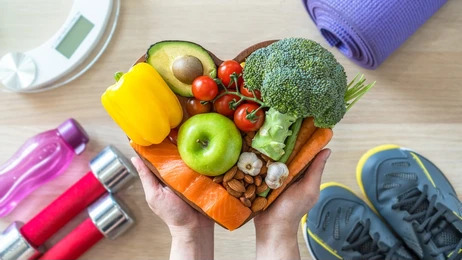Nutrition plays a pivotal role in the performance and overall health of athletes. Properly fueling the body with the right nutrients not only enhances performance but also supports recovery and reduces the risk of injuries. In this blog, we will delve into essential nutrition tips tailored for athletes, exploring how each component contributes to optimizing athletic performance.
Importance of Nutrition for Athletes
Athletes have unique nutritional needs due to their high levels of physical activity and energy expenditure. The right balance of carbohydrates, proteins, fats, vitamins, minerals, and hydration is crucial for:
- Energy Production: Fuelling workouts and sustaining endurance.
- Muscle Repair and Growth: Supporting recovery and building lean muscle mass.
- Immune Function: Strengthening the body’s defenses against illness and injury.
Key Nutrients for Athletes
- Carbohydrates
Carbohydrates are the primary source of fuel for muscles during exercise. Athletes should focus on complex carbohydrates such as whole grains, fruits, vegetables, and legumes to provide sustained energy. Examples include brown rice, quinoa, sweet potatoes, and oats.
- Proteins
Proteins are essential for muscle repair and growth. Athletes should aim for lean sources of protein such as chicken, turkey, fish, eggs, dairy products, tofu, legumes, and nuts. Consuming protein shortly after exercise can help with muscle recovery.
- Fats
Healthy fats provide concentrated energy and support overall health. Include sources of unsaturated fats like avocados, nuts, seeds, and olive oil in your diet. Omega-3 fatty acids, found in fatty fish like salmon and flaxseeds, help reduce inflammation and support heart health.
- Vitamins and Minerals
Athletes have increased needs for certain vitamins and minerals, such as vitamin D, calcium, iron, and magnesium. These nutrients play roles in bone health, oxygen transport, muscle function, and energy metabolism. Incorporate a variety of fruits, vegetables, whole grains, and dairy or dairy alternatives to ensure adequate intake.
Hydration for Optimal Performance
Proper hydration is crucial for athletes to maintain performance and prevent dehydration. Water is the best choice for hydration, but electrolyte-rich beverages like sports drinks can be beneficial during intense or prolonged exercise sessions. Monitor hydration status by paying attention to urine color and frequency.
Proper hydration can improve athletic performance by up to 20%, according to research published in the Journal of Athletic Training
Meal Timing and Composition
- Pre-Workout Nutrition
Fuel up with a balanced meal containing carbohydrates, moderate protein, and low fat 2-3 hours before exercise. Include foods that are easy to digest and provide sustained energy. Examples include a turkey sandwich on whole grain bread with fruit, or yogurt with granola and berries.
- Post-Workout Recovery
Within 30 minutes of exercise, consume a snack or meal rich in carbohydrates and protein to replenish glycogen stores and support muscle repair. Examples include a smoothie with banana, protein powder, and almond milk, or whole grain toast with avocado and scrambled eggs.
Common Nutrition Mistakes to Avoid
- Skipping Meals: This can lead to low energy levels and poor recovery.
- Overemphasizing Supplements: Focus on getting nutrients from whole foods whenever possible.
- Neglecting Hydration: Dehydration can impair performance and increase the risk of heat-related illnesses.
Conclusion
In conclusion, nutrition is a cornerstone of athletic performance and recovery. By focusing on a balanced diet rich in carbohydrates, proteins, fats, vitamins, minerals, and hydration, athletes can optimize their performance, support muscle repair, and maintain overall health. Incorporating these nutrition tips into your daily routine can help you achieve your athletic goals and excel in your chosen sport. Book your sports nutrition consultation today: https://tatamd.com/pain-free-disease/sports-medicine/


